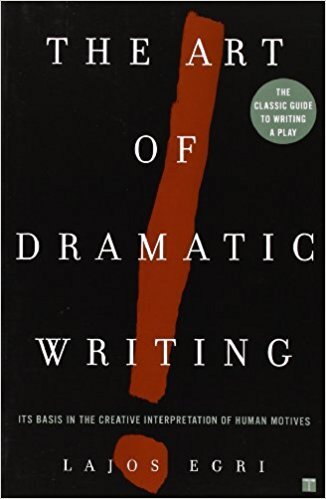How To Write A Premise For Your Story
Welcome to this detailed guide on how to write a premise. It’s interesting how attitudes change. When I first began writing I viewed the plot as the most important element of a story. If characters live a static existence, then what’s the point? The more time I invested in improving my writing, I realised the error of my ways. Character is, in fact, king. It’s their conflicts, their struggles, their journeys that glue hands to books and eyes to pages.
But I was wrong again. The element that presides over everything else is something I never paid much attention to, something I rather hoped emerged from my stories rather than weaved it into their fibre. The king of kings, the emperor, the god, is premise.
ContentsWhat Is A Premise In Writing?Does A Story Need A Premise?Understanding Premise In WritingPremise And ConvictionWhy Is Premise Important?Romeo and JulietOthelloHow To Create A PremiseMore Guides On How To Write A Premise and Literary Theme What Is A Premise In Writing?
What Is A Premise In Writing?A premise is the goal, purpose, central idea, or thesis of the story. The formal definition is an assertion or proposition which forms the basis for a work or theory.
So in other words, it’s the foundational idea or concept that serves as the backbone of your story. It’s the central question or statement that your narrative seeks to explore or prove. Think of it as the seed from which your entire plot grows. The premise is not the plot itself, but rather the core idea that drives the plot forward.
For example, in a fantasy novel, a premise might be: “What if a young farm boy discovers he’s the last heir to a powerful, magical kingdom?” This premise sets up the expectations for the story, hinting at the adventures, conflicts, and character development that will unfold as the narrative progresses.
The premise is crucial because it guides the direction of your story, providing a clear focus for the plot, characters, and themes. It helps keep your writing coherent and ensures that all elements of the story are working toward a common goal. Whether you’re writing a short story, a novel, or even a screenplay, having a strong, well-defined premise is key to creating a compelling and engaging narrative.
Does A Story Need A Premise?Now, not all stories have to explore a premise or theme. Some stories are just damn good tales. The books that have remained alive in my mind longest, though, have been the ones that have explored a premise, sought to answer it, have tried to bring clarity to a point, such that when you put the book down you feel like you’ve learned something. That’s what I want my writing to do, the kind that can help people, and hopefully, make a difference.
The premise is the sat nav. It will show you the way, lead you to a satisfying conclusion. It will suggest the one and only road the story must follow. Alexandre Dumas summed it up quite nicely:.
“How can you tell what road to take unless you know where you’re going?”
Understanding Premise In WritingLet’s break down premise into its core components.

In 1946, the Hungarian playwright Lajos Egri published The Art of Dramatic Writing. His first chapter is on premise. It changed everything for me. It all made so much sense. If you can get a hold of a copy of this book, do it.
“The very first thing you must have is premise . And it must be a premise worded so that anyone can understand it as the author intended it to be understood. An unclear premise is as bad as no premise at all.”
Egri was very much of the view that premise provided direction, a way to get to the conclusion of the story. Characters and plot are the vehicles to get there and the fuel required to propel them to that end is conflict. It is these three elements—character, conflict, conclusion—that Egri says every premise must have.
Let’s clear this up with an example:
Great love defies even death.
The premise of Romeo and Juliet. Can you identify each element in this sentence?
Great love represents character.
Defies suggests conflict.
Death is the conclusion.
Make sense? Let’s try another:
Frugality leads to waste.
Frugality represents character.
Leads to suggests conflict.
Waste suggests the conclusion.
Knowing a premise must have these three ingredients makes things so much easier, don’t you think? And these short, snappy sentences make for a fine thumbnail synopsis for your story. Here are a few other examples. Can you identify each element?
Honesty defeats duplicity.
Dishonesty leads to exposure.
Ill-temper leads to isolation.
Egotism leads to loss of friends.
Bragging leads to humiliation.
Premise And ConvictionDon’t run off in joyous abandon just yet. There’s something else Egri says a premise must have, and that’s conviction.
A premise cannot be a question. It’s a statement. It doesn’t have to be a universal truth, but you, or at least your characters, must wholeheartedly believe it.
“Until [the author] takes sides, there is no [story]. Only when he champions one side of the issue does the premise spring to life.”
So in effect, you could pick a premise such as murdering your dog leads to happiness, and as long as you can establish and prove it in your story, that’s a legitimate premise. Egri was of the view that if you did not wholeheartedly believe in your premise then you would be destined to fail. I don’t share that view as long as you can immerse yourself in the mind of someone who does. It’s certainly easier if it’s something you do believe, though.
Can a story have more than one premise? Egri says no. It ultimately leads to confusion. “Nobody can build a [story] on two premises, or a house on two foundations.” I’m a never say never kind of guy, though, so if you can make it work, go for it.
You may disagree with every word I’ve scribbled here. I entirely understand if that’s the case. The most wonderful thing about writing is there is no right or wrong way to do it. Some people never write with a premise in mind, others reveal it during editing, and some cannot start without. What works for someone may not work for you. All I say is, give it a go. Write a short story beginning with a premise. Build your characters and plot around it and let the premise direct you. Then make up your mind.
Why Is Premise Important?A story must have a purpose, a point, a goal— words we established are intertwined with the premise. If there’s no goal, how can a story work sequentially toward a conclusion? How do you know what steps to take to build your way to the end?
The premise, in essence, is the path to the conclusion. It is the argument you want to put across, the conviction you want to make. The plot, the characters… they’re all just vehicles for getting you there. Cannon fodder. You bend and manipulate them so you can state your purpose, make your point, prove your premise.
Still not having it? A premise example or two might help.
Romeo and JulietThis is a play about love. But it’s no ordinary kind of love. It’s a love so great that it transcends death. They could not be together in the living realm, so chose to be with each other in that of the dead. The premise here is great love defies even death.
OthelloWhen Othello discovers a handkerchief belonging to Desdemona in Cassio’s home, envy consumes his heart. He kills Desdemona and then himself. The premise here is jealousy destroys itself and the object of its love.
 How To Create A Premise
How To Create A PremiseCreating a strong premise begins with identifying the core idea or theme you want to explore in your story. Start by asking yourself: What is the central conflict or situation that will drive your narrative? This can be a “what if” question, a moral dilemma, or a fundamental truth about human nature or society that you wish to examine.
Next, consider the main characters and setting that will bring this idea to life. Think about who the protagonist is, what they want, what obstacles they face, and how the world around them influences their journey. Your premise should hint at the stakes involved and the potential for growth or change.
Once you have these elements, distill them into a concise statement that encapsulates the essence of your story. A good premise is clear, specific, and intriguing, sparking curiosity about how the story will unfold. For example, “A young wizard must navigate a world of dark magic to stop an ancient evil from destroying his kingdom” gives a strong sense of the conflict, stakes, and setting.
Finally, ensure that your premise is flexible enough to allow for creativity in the plot but focused enough to keep your story on track. This balance will help guide your writing and maintain the coherence of your narrative.
More Guides On How To Write A Premise and Literary ThemeThank you for checking out this guide on how to write a premise and write with a literary theme. Below, you can find links to some other guides you may find useful.
Click here to check out my list of fantasy publishersOr head here to see a list of over 150 fantasy magazines and journalsAnd I also have a guide on characterisation you may enjoy. Head here for more writing tips and guidesThanks for reading this guide on how to write a premise.
The post How To Write A Premise For Your Story appeared first on Richie Billing - Writing Tips And Fantasy Books.



